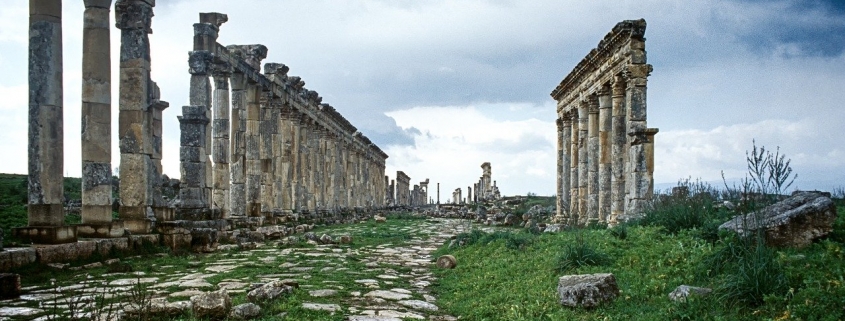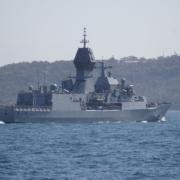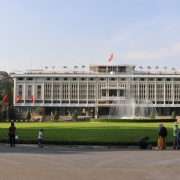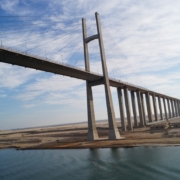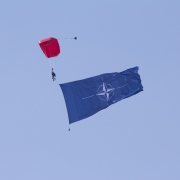What is the UN Responsibility to Protect?
Topic of Study [For H2 History Students]:
Paper 1: Safeguarding International Peace and Security
Section B: Essay Writing
Theme III Chapter 2: Political Effectiveness of the UN in maintaining international peace and security
The Problem with Sovereignty of Nation-States
A sovereign nation has the political rights to dictate the policies that affect its citizens within its national boundaries. This includes the introduction of new laws as well as modification of existing ones.
Following the disastrous events of the Rwandan Genocide (1994) and Bosnian War (1992-1995), United Nations Secretary-General (UNSG) published the Millennium Report to highlight the inaction of the international organisation. Annan asserted that sovereignty of nation-states should not take precedence over the ‘gross and systematic violation of human rights’.
“…if humanitarian intervention is, indeed, an unacceptable assault on sovereignty, how should we respond to a Rwanda, to a Srebrenica – to gross and systematic violations of human rights that affect every precept of our common humanity?”
We the Peoples, by United Nations Secretary-General, Kofi Annan
As such, the United Nations Security Council (UNSC) ushered an ‘decade of humanitarian intervention’ in the post-Cold War period. Peacekeepers expanded their role to peacebuilding, as such by its involvement in the political transition of Cambodia and East Timor.
To recap, let’s take a look at the UN Charter that outlined the importance of sovereignty:
“Nothing contained in the present Charter shall authorize the United Nations to intervene in matters which are essentially within the domestic jurisdiction of any state or shall require the Members to submit such matters to settlement under the present Charter; but this principle shall not prejudice the application of enforcement measures under Chapter VII.“
Article 2(7) of the UN Charter
The crux of the issue lies with the unwillingness of member states to allow UN intervention as external involvement is being perceived as threats to their sovereign rights. Thus, the international organisation is severely constrained by this Charter limitation.
The creation of the Responsibility to Protect (R2P)
In September 2000, the Canadian government set up the International Commission on Intervention and State Sovereignty (ICISS) after the bombing campaign carried out by the North Atlantic Treaty Organisation (NATO) in Yugoslavia during the Kosovo War (1999).
In December 2001, the ICISS published “The Responsibility to Protect” report to assess the “right of humanitarian intervention” in view of past events such as the legality and morality of military actions.
A. State sovereignty implies responsibility, and the primary responsibility for the protection of its people lies with the state itself.
B. Where a population is suffering serious harm, as a result of internal war, insurgency, repression or state failure, and the state in question is unwilling or unable to halt or avert it, the principle of non-intervention yields to the international responsibility to protect.
The Responsibility to Protect: Core Principles, ICISS Report, December 2001
In short, the state must bear the responsibility to look after the interests of its people as part of its sovereign rights. Should it fails to do so, the international community can override the decisions of the state to look after the interests of the affected people.
On 2 December 2004, the UNSG Kofi Annan addressed the General Assembly, highlighting the involvement of the High-level Panel on Threats, Challenges and Change to “assess current threats to international peace and security” and “make recommendations” for collective security in the 21st Century.
138. Each individual State has the responsibility to protect its populations from genocide, war crimes, ethnic cleansing and crimes against humanity…
139. The international community, through the United Nations, also has the responsibility to use appropriate diplomatic, humanitarian and other peaceful means, in accordance with Chapters VI and VIII of the Charter, to help protect populations from genocide, war crimes, ethnic cleansing and crimes against humanity.
2005 World Summit Outcome, 24 October 2005
Application of the R2P: NATO’s intervention in Libya (2011)
The R2P was invoked due to the state sanctioned attacks on the Libyan civilians during the “17 February Revolution”. The Libyan government was led by a despotic ruler, commonly known as “Colonel Gaddafi”.
The UNSC adopted Resolution 1970 on 26 February 2011 to condemn Gaddafi’s use of lethal force against protesters in Libya. Sanctions were imposed on the Gaddafi family, such as the freezing of assets.
On 19 March 2011, NATO led a coalition force against the Libyan dictator. The NATO campaign lasted for 7 months, which led to the death of Muammar Gaddafi.
However, NATO’s controversial involvement in Libya went beyond the protection of the citizens as it led to a regime change. As such, critics argued that Western military intervention was largely driven by the desire for resource acquisition, given that Libya was one of the world’s largest oil producers.
What can we learn from this article?
Consider the following questions to understand the topic:
– Examine the effectiveness of the Responsibility to Protect as a UN reform in keeping the organisation relevant in the 21st Century [to be discussed in class].
Join our JC History Tuition and learn to analyse the significance of the United Nations in the post-Cold War period.
The H2 and H1 History Tuition feature online discussion and writing practices to enhance your knowledge application skills. Get useful study notes and clarify your doubts on the subject with the tutor. You can also follow our Telegram Channel to get useful updates.
We have other JC tuition classes, such as JC Math Tuition and JC Chemistry Tuition. For Secondary Tuition, we provide Secondary English Tuition, Secondary Math tuition, Secondary Chemistry Tuition, Social Studies Tuition, Geography, History Tuition and Secondary Economics Tuition. For Primary Tuition, we have Primary English, Math and Science Tuition. Call 9658 5789 to find out more.

